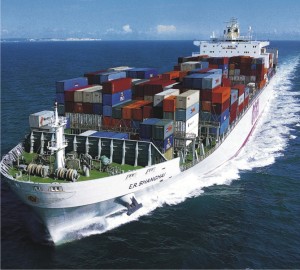 In the shipping industry, the words declaring and insuring are often interchanged resulting in great misunderstanding and confusion among shippers. In this week’s edition of Shippers’ Guide here is an explanation of what to expect when declaring value with your forwarder/carrier versus purchasing cargo insurance.
In the shipping industry, the words declaring and insuring are often interchanged resulting in great misunderstanding and confusion among shippers. In this week’s edition of Shippers’ Guide here is an explanation of what to expect when declaring value with your forwarder/carrier versus purchasing cargo insurance.
What is declared value coverage?

Declared value coverage is not full insurance for shippers, it is like the third party insurance cover in vehicle insurance, also known as clause C coverage. One of the most significant distinctions of being paid on a claim under declared value is that the shipper must prove that the carrier’s negligence directly resulted in the loss or damage to cargo.
Declaring value simply raises the financial legal liability of the carrier beyond the limitations stated on the carrier’s or shippers’ freight bill, tariff or other contract of carriage. For example, many shippers and forwarders limit their liability.

Declaring value takes that amount up to the amount declared. The majority of these transportation providers have transferred that risk to an insurance company who issues an insurance policy that gives shippers the option of upping the carrier’s liability by declaring value and paying premium.

Although subject to the transportation provider’s policy conditions, shippers rarely see the insurance policy containing important facts such as deductibles, exclusions, warranties and policy limits.
Common exclusions and warranties are; “dishonesty on part of carrier’s employees”, “theft occurring while transporting and theft of certain commodities such as cell phones, cigarettes, fashion apparel, computer memory and the like” are left unattended.
What is Cargo Insurance?
When purchased, cargo insurance is attached to the cargo while in transit with coverage being extended to warehousing. Cargo insurance pays regardless if the loss or damage was due to the carrier’s negligence.
Furthermore, cargo insurance provides protection for the full commercial invoice value plus freight and other costs associated with the cargo.
Shippers often ask, we have been declaring value for many years and our transportation providers seem to pay our claims without much resistance. Why should we consider buying cargo insurance and paying extra if we’ve had no problem in the past with declaring value?
As a matter of customer goodwill, some carriers are in the practice of paying claims out-of-pocket as a cost of doing business. This practice often leaves the shipper with the wrong impression that by declaring a value they have purchased full protection insurance. Not until claims reach a certain amount do shippers discover that their carrier’s start re-evaluating their goodwill practices and forwarding claims onto insurers who have the option of putting up a rigorous defense.
In most cases, there is no difference between the cost of cargo insurance and the cost of the declared value coverage provided by the carrier.
What are some of the things not covered when by declaring value?
Three significant areas not addressed by declared value are: that the shipment is not covered on door-to-door. Declared value is valid as long as cargo is in the care, custody, and control of the transportation provider; Other losses commonly not provided for include “Acts of God” and any other incidences outside the control of the carrier; and Reimbursement of freight charges, packing expenses, forwarding fees.
What are some of the things covered when by Cargo Insurance?
Cargo Insurance Provides door-to-door protection, Pays whether or not transportation provider’s negligence is proven to have caused the loss, Pays for losses occurring outside control of the carrier, Pays shipper for the full invoice value of cargo lost or damaged plus freight and other associated costs, Can pay for expediting replacement goods.
Often shippers are skeptical about cargo insurance and insist that they have been shipping for years without a serious loss. Isn’t it throwing away money to start buying coverage now?
No. Experienced risk managers will tell you that insurance shouldn’t be purchased only when a company can afford to sustain a significant loss. Think of the maximum value of a shipment. Imagine that entire load being destroyed in an airplane crash or truck overturn.
Picture your company being without that money forever. If the shareholders can sustain that kind of loss along with the other entire little nuisance losses that occur throughout the year, and can do it without a sleepless night, then you can.
 MMS PLUS NG – Maritime, Aviation, Business, Oil and Gas News Online Newspaper with coverage in Maritime, Oil and Gas, Aviation, Power and Energy as well as Financial News
MMS PLUS NG – Maritime, Aviation, Business, Oil and Gas News Online Newspaper with coverage in Maritime, Oil and Gas, Aviation, Power and Energy as well as Financial News









